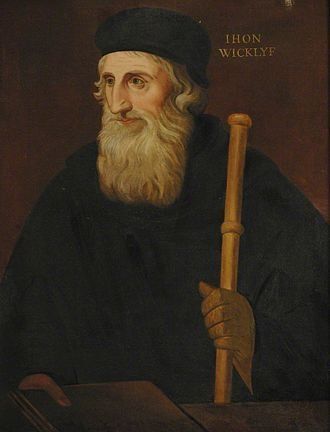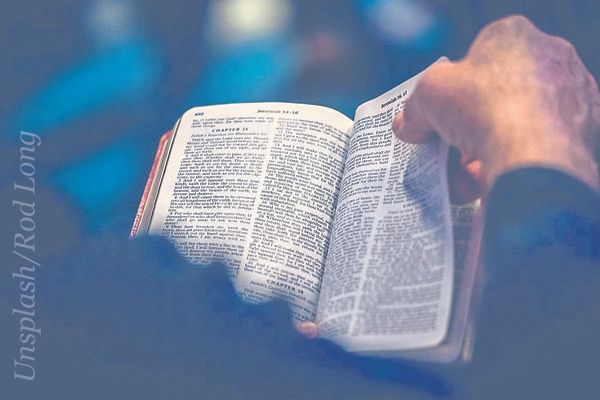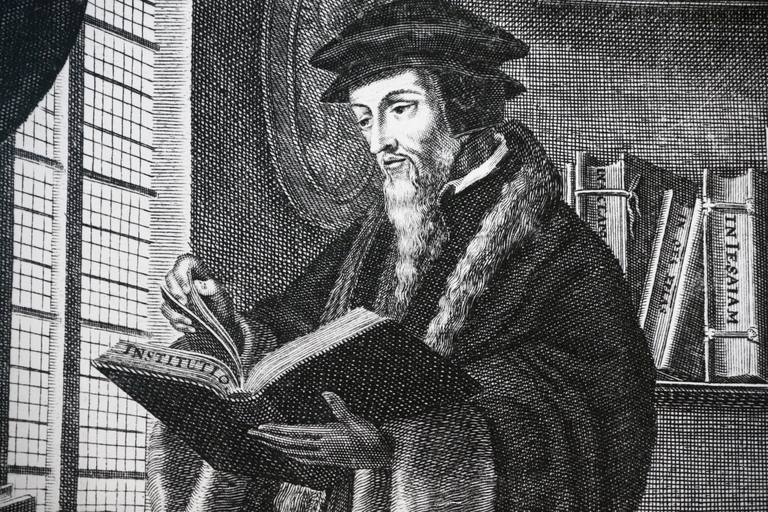
Over the past five years, we have seen Protestants making greater concessions to the Roman Catholic Church in the historic signing of Evangelicals and Catholics Together 1994 and 1997. There is a strong prevailing disposition among the neo-evangelical community to give up (or at least minimise) the major doctrinal differences between Protestant churches and the Roman Church. There is either a lack of understanding of the gravity of the matter, or a deliberate and calculated betrayal of the Protestant faith.
As we commemorate the 483rd anniversary of the sixteenth-century Protestant Reformation, we need to ask the crucial basic question of why the Reformation took place and whether there is a need to continue today in the spirit of that Reformation.
The reason for the Reformation
Why was there a Reformation in the first place? One of the reasons was the rediscovery of the attractiveness of the pure gospel. After the Renaissance (thirteenth to fifteenth centuries), the minds of the people in Europe were opened to the exploration of the arts, literature, and ancient culture. People in Europe began to question the teachings and practices of the established church.
Desiderius Eramus of Rotterdam, the humanist scholar, did the church a great favour by producing his Greek New Testament in 1516 (previously, only Latin versions were available). Men like Thomas Bilney, Luther and others read the New Testament in its original language first-hand, and began to discover for themselves the spiritual vitality and beauty that was lacking in the medieval church.
They could not contain their spiritual excitement in rediscovering the watershed doctrine of justification by faith alone. It gave meaning, purpose and life to the church, and the revival spread throughout Europe.
Is this prized heritage something to be jettisoned overnight? We need to pray for wisdom and discernment, and not barter the truth for ‘peace’, to our detriment in these hazardous times.

Declension
Today, religious movements, generally, teach that we have to placate the gods with a ‘good life and the works of our hands’, while some teach that we are ourselves gods (cf. Genesis 3:5). Protestant Christianity, which came through the Reformation, stands apart as radically different from the rest. It proclaims Christ and him crucified as the all-sufficient basis for salvation, thus restoring New Testament Christianity (1 Corinthians 2:2). As Jesus says in John 14:6: ‘I am the way, the truth, and the life: no man cometh unto the Father, but by me’.
The Middle Ages were times of theological declension, like our own. Indulgences, mass, ceremonies, rosaries, works, the veneration of saints, and the worship of relics, reigned supreme in the hearts of the ordinary people in the church for 1,000 years. The clergy of the Middle Ages were blind spiritual guides, and their unmarried monks were often guilty of moral excesses, corruption, gluttony and other such things. The people were starved spiritually and frustrated. As Isaiah said, they waited for light (Isaiah 59:9).
The Waldenses (led by Peter Waldo) provided that light in the pre-Reformation days of the twelfth and thirteenth centuries, but were mercilessly persecuted and martyred. But the sovereign Lord had predestined a time for revival.
John Wycliffe, a pre-Reformer of the fourteenth century, asked an English commoner how he hoped to go to heaven. He replied that his priest had assured him that he could buy his way to heaven. That would probably be the average answer you would get from most people living during those times. The Reformation broke that yoke of bondage and delivered men from a work-for-your-salvation religion, restoring the doctrine of salvation through faith in Christ alone (Romans 1:17; Ephesians 2:8–9; Titus 3:5).

Role of the clergy
The Reformation changed the role of the clergy. Luther called himself a pastor, not a priest, because the Bible teaches the universal priesthood of believers (1 Peter 2:9). For example, he refused to hear auricular confession. After more than 1,000 years, ‘priests’ became redundant in the church, for those who know Christ Jesus personally have direct access to the throne of grace and need no intermediaries. Every man is to pray directly to his God because Christ Jesus is our only Mediator (1 Timothy 2:5).
Luther, Calvin and others married and started Christian families. Children were catechised and brought up in the fear and nurture of the Lord. Celibacy was a burden the Lord never meant his servants to bear (1 Timothy 3:1–5).
The late medieval era became a period of enormous interest in Christianity. People flocked to Wittenberg to hear Luther, to Geneva to hear Calvin, and to Zurich to hear Zwingli. Similarly, John Knox was to bring the Reformation to Scotland later.
The attraction of indulgences, sanctioned by Pope Leo X to raise money for the rebuilding of St Peter’s Church in Rome, faded. Enlightened people began to realise that forgiveness is rich and free in Christ Jesus alone, and not a commodity that can be bought in the ‘spiritual’ marketplace. The financial corruption and spiritual deception of the church were finally over.

Education
The Reformation brought home the importance of Christian education. In medieval times, only the priests were educated. Now, every true believer needed to understand his new-found faith. The Bible was given to them in their own vernacular language, and they could read it, relish it and apply it.
One of the great ideas of the Reformation was to unveil the enormous wealth of Holy Scripture and have it savoured by the common people.
Calvin encouraged learning in Geneva, and soon John Knox of Scotland and others came from afar. With the invention of the printing press by Johann Guttenberg in 1454–1455 (a divine provision), literature could be duplicated quickly and disseminated all over Europe.
Exegetical works, commentaries and biblical theological textbooks like Calvin’s Institutes, flooded Europe. These relieved the people of erroneous and heretical preaching and practices. The Reformers’ motto was ‘Back to the Scriptures’, and this dramatically influenced all aspects of Western thought. The Reformation was surely one of the most life-shaping and life-changing movements in modern history.

The biblical illiteracy of the common people, that had darkened minds for so many centuries, was finally over. Hosea 4:6 says, ‘My people are destroyed for lack of knowledge: because thou hast rejected knowledge, I will also reject thee, that thou shalt be no priest to me: seeing thou hast forgotten the law of thy God, I will also forget thy children’. That curse was in large part removed by the Reformation.
Resources of the past
The church regained its true sense of spiritual direction. It rediscovered the real dynamics of the early church, in expository preaching, a proper observance of the sacraments, true worship, prayer and evangelical repentance. It was almost a second Pentecost, a revival initiated by the Holy Spirit.
Why was there a Reformation? Because there was a lost gospel to be rediscovered in all its fulness; because the church had veered from the straight and narrow way.
So still today, the Reformation gives us biblical bearings, landmarks and pertinent lessons with which to address the issues and problems of our own times. Let us, then, make use of the inspiration and resources of the past.







